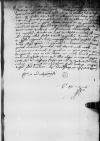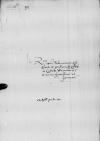Letter #1846
Ioannes DANTISCUS to Tiedemann GIESEHeilsberg (Lidzbark Warmiński), 1538-04-15
English register:
Dantiscus is recovering; advice, pleasant company and conversation provided by the Doctor [Nicolaus Copernicus] have been his medicine. Through the Doctor, Dantiscus is sending Giese news about the lawsuit against Paweł [Snopek].
Dantiscus has heard that his own rights to a prebend and the rights of the Provost [Paweł Płotowski] are being questioned; he intends in the future to punish those responsible.
He asks Giese to support Paweł [Snopek] and on this matter to trust the information provided to the Doctor [Nicolaus Copernicus].
| received [1538]-04-16 Manuscript sources:
Prints:
| ||||||||||||||
Text & apparatus & commentary Plain text Text & commentary Text & apparatus Excerpts concerning Dantiscus' travels
Reverendissimo Domino
Reverendissime Domine, frater et amice carissime et honorande.
Salutem et fraterni amoris commendationem.
Deo gratia rectius valeo, quemadmodum frater et communis amicus noster dominus
Audio et meam praebendam revocari sub incudem, quasi illam falso titulo possederim.[1] Accedit et, quod domino
Si quid Dominatio Vestra Reverendissima pro domino
Et quam diutissime feliciter valeat.
Ex
Reverendissimae Dominationis Vestrae integerrimus frater
[1 ] There is no doubt that

